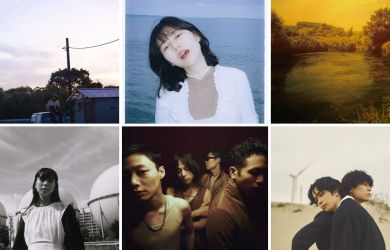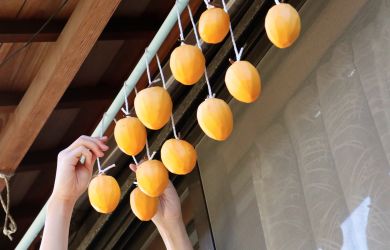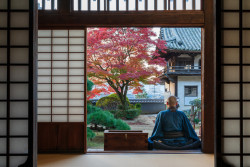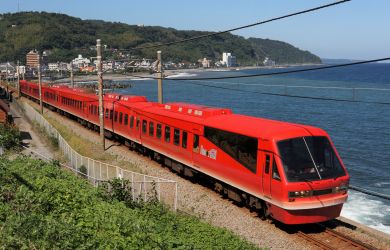
February 11, 2010
Games On!
Putting their poor showing in Turin behind them, Japan’s Olympians have high hopes for Vancouver
By Metropolis
Originally published on metropolis.co.jp on February 2010

Mao Asada
Once upon a time, athletes simply wanted to be a part of the Olympics. Gold and silver were just the color of the medals. Now, the Games are more about how much you can earn from winning gold, how much advertising can be screwed from official sponsors, and how much glory can be gained from association with the five rings. Though participation is still a key element, winning has a higher value than it used to—such a high value, in fact, that champions are tempted to quit their sport and jump on the gravy train before they’ve taken the medals from around their necks. And who can blame the likes of Shizuka Arakawa, who won Japan’s only medal at the 2006 Turin Olympics? Winning takes a lifetime of effort and sacrifice. Some just can’t go through that more than once.
For Japan, Olympic nirvana came 12 years ago in Nagano, when the host country racked up ten medals and walked off with five golds. Even by home-country standards, it was a dazzling result. What’s more, the Nagano Games were a fantastic event, with the whole town partying for two weeks. It showed that the Games aren’t just about the athletes—they’re also about stories, emotions, dedication, empathy and joy. From February 12 to 28, the Vancouver area will be party central for the world of winter sports. It might not have the intimacy of Nagano, but Canada’s west coast boys and girls know how to have a good time.
For Japan, expectations are high once again. Perhaps they shouldn’t be. After the brilliance of Nagano, the country could only muster two medals in Salt Lake City in 2002 (a bronze by Tae Satoya in the moguls and a silver by Hiroyasu Shimizu in the 500 meters; both were defending champions), and nothing but Arakawa’s gold in Turin four years ago. With 94 athletes heading for Vancouver, though, Japan at least has a statistical chance. Moreover, the team includes former medal winners and a number of current or former world champions.
Whether they are personally in it for the money or the glory probably won’t matter to your average Japanese; if Japan wins something, the whole country will be ecstatic.
Here’s a rundown on some of the events to look out for.
Figure skating: Women’s
This is the big one for Japan, not only because Arakawa won the gold in Turin, but also because of the high quality of the national figure-skating squad. The women will be led by 2008 world champion Mao Asada and 2007 world champion Miki Ando. The third skater is Akiko Suzuki.
Almost everyone in Japan will be praying for Asada to clinch the gold. The 19-year-old is the darling of the sport here; by contrast, Ando is the Wicked Witch of the East. Asada was unable to compete in Turin as she was too young—by three months. This was tough on the Japanese, as Mao-chan was reckoned to be a dead cert for gold. Still, Arakawa covered that one nicely.
Asada is a great skater, but as she’s grown up, she’s become less convincing, more unsure of herself, and prone to wilt under pressure. Her strength to date has been brilliant jumping, but in the run-up to Vancouver, she’s been inconsistent. In two Grand Prix events this season, she finished second and fifth and failed to qualify for the Grand Prix Final in Tokyo, but she went some way to making up for this by triumphing convincingly in the Japan Championships in December.
The 22-year-old Ando, meanwhile, pipped Asada for the world title with a brilliant display in Tokyo in 2007. This made up for a disappointing 15th place in Turin, after which she was mercilessly panned by the Japanese media (including accusations of being overweight). Clinching the 2007 world title by a narrow margin over the nation’s sweetheart—and in Tokyo, no less—must have been a sweet feeling. Despite a middling season in 2008, Ando has been much more consistent under coach Nikolai Morozov (they’ve been together for three years now) and is looking good heading to Vancouver, winning two Grand Prix events towards the end of 2009 and finishing second in the Grand Prix Final in Tokyo in December.
Suzuki, 24, also had a strong end to 2009, but her career has been lightweight compared to her two teammates. She did place second in the NHK Trophy in 2008 and in the Japan Championships in December, as well as taking the bronze in the Grand Prix Final and winning events in China and New Zealand. In truth, she’s performing with a lot of confidence, but she will have to skate out of her skin to earn a medal in Vancouver.
According to my mole in the skating world, Yukari Nakano should really be the third skater on the team. Suzuki edged Nakano by less than a point in the Japan Championships, thereby clinching her Olympic spot. But Nakano has a better overall record and, importantly, greater recognition in the skating world, a significant factor in a sport where scoring is still a murky affair.
While a gold medal is still a possibility for a Japanese skater, the prediction is that Kim Yu Na of South Korea will win ahead of Canada’s Joannie Rochette.
Figure skating: Men’s

Nobunari Oda
On the men’s side, Japan has two excellent skaters in Daisuke Takahashi and Nobunari Oda. (The third member of the squad is Takahiko Kozuka.) Takahashi, 23, missed the whole of last season with a knee injury, but has come back strong this season and won the Japan Championships ahead of Oda in December. He also finished first in the Finlandia Trophy and second at Skate Canada International, and seems to be getting back to his fine form of two years ago, when he won four tournaments. Oda, meanwhile, is also in top condition—and his Charlie Chaplin routine has been grabbing headlines wherever he skates. It took him to victories in two Grand Prix events, after which he finished second in the Grand Prix Final. But the men’s competition is very tough: Turin gold medalist Yevgeny Plushenko (Russia) is back to his championship best, while Stephane Lambiel (Switzerland), Brian Joubert (France), Evan Lysacek (US), Jeremy Abbott (US) and Patrick Chan (Canada) are all in the frame.
Japan’s other notable representatives in figure skating both hail from Kalamazoo, Michigan. Siblings Chris and Cathy Reed—half-Japanese, half-American—will represent Japan in ice dancing.
Speed skating
Nagano 500 meters gold medalist Hiroyasu Shimizu hasn’t made the cut for Vancouver, but another veteran, Tomomi Okazaki, will be skating in her fifth straight games (she’ll also be Japan’s flag bearer). Okazaki lit up the Nagano Games with her style and smile while earning the bronze in the 500m. She almost repeated the trick four years ago when she finished fourth—by just five hundredths of a second—but at the age of 38, she’s still competitive. Another bronze would be a good result.
A Japanese woman hasn’t won an overall World Cup title for 20 years at any distance, and they’ve only picked up three bronze medals in the Olympics, so if Okazaki comes home with some hardware, it will be a sensation. If Miho Takagi gets a medal, though, Japan will go nuts. Takagi is 23 years younger than her sempai—in fact, she’s still in junior high school. She’ll compete in the 1,000m, 1,500m and team pursuit. Other possible medalists on the women’s side include Nao Kodaira in the sprints and Masako Hozumi in the long-distance races, while Sayuri Yoshii came into the reckoning after winning the 1,000m title at the World Sprint Championships in January.
On the men’s side, Japanese skaters are placed fifth, sixth and seventh in the 500m World Cup rankings, with fifth-ranked Keiichiro Nagashima taking the gold in the recent World Sprint Championships (ahead of World Cup leaders Lee Kang Seok and Lee Kyou Hyuk of South Korea). Former 500m world record holder Joji Kato (ranked sixth) will also be in Vancouver aiming for gold, along with seventh-ranked Yuya Oikawa. But beyond the 500m, Japan’s hopes are dim—the country doesn’t have a single skater in the top ten for any other distance.
Short-track speed skating
In Olympic short-track skating, Japan has collected one gold (Takafumi Nishitani in the 500m at the Nagano Games) and two bronze medals (in the team 5,000m relay in Albertville in 1992, and Hitoshi Uematsu in the 500m at Nagano), but the country’s athletes are not expected to get any medals in Vancouver. Their best chance will be in the women’s 3,000m relay, where they are ranked fifth. But stay tuned. Short-track is the most exciting sport of the Games, and American star Apolo Anton Ohno—who scored a controversial win in 2002—will be back to try and piss off the South Koreans again. Short-track has speed, physical contact, crashes and politics. Not to be missed.
Ski jumping

Takanobu Okabe
Japan has won more golds in ski jumping than in any other winter sport: three, to go along with four silver and two bronzes (speed skating is the top overall sport with 12 medals, only one of which was gold). Two of those triumphs came at Nagano, when Japan won the team competition and Kazuyoshi Funaki clinched the large-hill title. One member of the gold-winning Japan team is still at it. Takanobu Okabe may be 39, but he’s lost none of his competitive spirit—he won his first World Cup crown in 11 years in November—and will be a key member of this year’s team, alongside another Olympic veteran, Noriaki Kasai, who already has a second place finish in a World Cup event this year. The 37-year-old Kasai, who won a silver medal in the team event at Lillehammer in 1994, will be taking part in his sixth straight Olympic Games and, like Okabe, remains extremely competitive. He was on Japan’s bronze-medal-winning team in last year’s World Championships, along with Okabe, Daiki Ito and Shohei Tochimoto, who will also be heading to Vancouver. The fifth member of the team is Taku Takeuchi.
Freestyle skiing
Until a few months ago, the one dead cert for a gold medal was Aiko Uemura in the moguls. Uemura won the World Cup in 2008 and the World Championship last year, but the recently married 30-year-old has struggled this season, and she’s way down in the World Cup standings behind defending Olympic champion Jennifer Heil. But Uemura is a tough competitor and the leader of Japan’s moguls skiers, so don’t be surprised if she comes good on the slopes at Whistler. She’ll be pushed by teammate Miki Ito, the current Japan champion who finished second in the dual moguls and fourth in the singles at last year’s World Championships, and Nagano Olympics gold medalist Tae Satoya. The highest-ranked Japanese men are moguls skiers Nobuyuki Nishi (11th) and Kai Ozaki.
Alpine Skiing
Japan’s only medal in this category came in 1956, when Chiharu Igaya took silver in the slalom. The country’s highest-ranked Alpine skiers are Akira Sasaki and Naoki Yuasa, currently 22nd in the slalom standings.
Nordic combined
There was a time when Japan dominated the Nordic combined, thanks to the Ogiwara twins. Kenji picked up individual gold medals at the 1992 and 1994 Olympics, as well as winning four World Championship titles. Japan has five skiers in the FIS top 50, but no one higher than Norihito Kobayashi at number 16, so while the chances of an individual medal are remote, they could still be in contention in the team event.
Other sports

Japan has only won medals in seven sports at the Winter Olympics: ski jumping, Nordic combined, speed skating, short-track speed skating, freestyle skiing, Alpine skiing and figure skating. So nothing in bobsleigh, cross-country, snowboard, luge, skeleton, ice hockey, biathlon or curling.
If the country is going to break out of its run of also-rans, the best hope is probably in snowboarding, arguably the most popular winter sport in Japan. Halfpipe world champion Ryo Aono is in with a great shot, while Kazuhiro Kokubo, Kohei Kudo and Daisuke Murakami—who all have recent World Cup wins to their credit—are ranked 2, 4 and 5, respectively, in the FIS halfpipe standings.
The top-ranked Japanese woman is 19-year-old halfpiper Rana Okada, who is number 8 in the FIS standings. She’s also Japan champion and picked up a World Cup bronze medal last season. Soko Yamaoka, the former world No. 1 who won the halfpipe World Cup five years ago, may be a bit long in the tooth at 35, but she has the experience necessary to do well in the Olympics (and has won a World Cup event in Whistler). In snowboard cross, Japan champion Yuka Fujimori finished fifth in the first World Cup event of the season and is ranked 12th by the FIS, while 17th-ranked Natsuko Doi is also in with a chance.
Curling has managed to earn a disproportionate amount of media attention in Japan in recent years, mainly because some members of the women’s team (picture) are very telegenic. To their credit, though, they’ve been able to crack the top 10 in the world and have even beaten Canada, who top the men’s and women’s rankings. The women have an outside chance of a medal.
One footnote: skeleton racer Kazuhiro Koshi will become Japan’s oldest ever competitor at a Winter Olympic Games. The 45-year-old’s best Olympic result was eighth at the Salt Lake City Games in 2002.
The 2010 Winter Olympics take place Feb 12-28.
Olympics tv schedule
Saturday 13
- Ski Jumping: NH Indiv. Qual. 8-9am N1
- Opening Ceremony 10:55am-1:30pm 1
- Opening Ceremony (R) 7:30-10:30pm 1
- Ski Jumping: NH Indiv. Qual. (R) 1:10-2am N1
- Ski Jumping: NH Indiv. Qual. (R) 2-2:45am 1
- Opening Ceremony (R) 2:10-4:55am N1
- Ski Jumping: NH Indiv. Final 2:45-4:30am 1
Sunday 14
- Alpine Skiing: M Downhill 4:30-7am 1
- Speed Skating: M 5000m Final 4:55-7:30am N1
- Speed Skating: M 5000m Final 5-7:30am 8
- Alpine Skiing: M Downhill (R) 7:30-9:20am N1
- Ski Jumping: NH Indiv. Final (R) 7:45-9am 1
- Freestyle Skiing: W Moguls Qual. 9-11am 4
- Freestyle Skiing: W Moguls Qual;
- W Moguls Final/
- Ski Jumping: NH Indiv. Final (R) 9:20am-1:35pm N1
- Short Track:
- M 1500m Semifinal;
- W 3000m Relay Qual;
- M 1500m Relay Final 10:05am-12:45pm 1
- Short Track: W 3000m Relay Qual;
- M 1500m Final(R)/
- Biathlon: W 7.5km Sprint (R) 1:45-4pm N1
- Freestyle Skiing: W Moguls Final 12:20-1:30pm 4
- Freestyle Skiing: W Moguls Final (R) 1:35-3pm 1
- Alpine Skiing: M Downhill (R)/
- Freestyle Skiing: W Moguls Qual. (R) 6:10-8:50pm N1
- Freestyle Skiing: W Moguls Final (R)/
- Luge: M Single (R) 9pm-midnight N1
- Ice Hockey: W Prelim: Canada vs. Slovakia (R) 12:20-2:40am N1
- Nordic Combined: NH Indiv. 2:50-4am N1
Monday 15
- Alpine Skiing: W Combined Downhill (R)/
- Nordic Combined: Indiv. 10km/
- Freestyle Skiing: M Moguls Qual. 4-8:35am N1:
- Speed Skating: W 3000m 6-8am 1
- Nordic Combined: Indiv. 10km/
- Freestyle Skiing: M Moguls Qual. 6:25-8:30am 10
- Nordic Combined: NH Indiv. (R)/
- Figure Skating: Pairs Short 8:35-11:54am 1
- Luge: M Single (R) 8:40-10:20am N1
- Freestyle Skiing:
- M Moguls Final/
- Alpine Skiing: W Combined Slalom (R)/
- Biathlon: M 10km Sprint (R) 10:20am-1:35pm N1
- Freestyle Skiing: M Moguls Final 10:30-11:45am 10
- Figure Skating: Pairs Short noon-1pm 1
- Freestyle Skiing: M Moguls (R) 1:20-3pm 1
- Ice Hockey: W Prelim: USA vs. China (R) 1:45-3:45pm N1
- Freestyle Skiing: W Moguls Qual. and Final 11pm-2:10am BSN
- Cross-Country Skiing: W 10km Free 2:50-4:15am 1
Tuesday 16
- Snowboarding: M Cross Qual. and Final/
- Cross-Country Skiing: M 15km Free 3-8am N1
- Snowboarding: M Cross Final 6:50-8:15am 4
- Cross-Country Skiing: W 10km Free (R) 8:10-9:50am N1
- Speed Skating: M 500m 8:30-11:54am 1
- Figure Skating: Pairs Free 9:50am-2pm N1
- Figure Skating: Pairs Free 9:55am-1:55pm 6
- Cross-Country Skiing: W 10km Free (R) 1:05-3pm 1
- Luge: W Single (R) 2-4pm N1
- Ice Hockey: W Prelim:
- Switzerland vs. Canada (R) 4-6pm N1
- Snowboarding: M Cross Qual. and Final 11pm-3:55am BSN
- Figure Skating: Pairs Free (R) 12:20-2:45am N1
- Snowboarding: W Cross Qual. 2:50-4:30am 1
- Alpine Skiing: M Combined Downhill/
- Biathlon: W 10km Pursuit (R)/
- Snowboarding: W Cross (R) 2:50-6:40am N1
Wednesday 17
- Snowboarding: W Cross Final 5:15-5:50am 1
- Speed Skating: W 500m Final 5:30-9:05am 6
- Curling: W Prelim: Japan vs. USA 6:45-10am N1
- Curling: W Prelim: Japan vs. USA/
- Figure Skating: M Short Prog. 8:30am-1:50pm 1
- Ice Hockey: M Prelim: Canada vs. Norway (R)/
- Alpine Skiing: M Combined Slalom (R) 10am-2:10pm N1
- Luge: W Single (R) 2:20-3:45pm N1
- Curling: W Prelim: Japan vs. USA (R) 2:05-3pm 1
- Snowboarding: W Cross (R) 4:10-6pm N1
- Figure Skating: M Short Prog. (R) 9-10:48pm 8
- Figure Skating: M Short Prog. (R) 11pm-1am BSF
- Ice Hockey: M Prelim: USA vs. Switzerland (R) 12:20-2:55am N1
- Curling: W Prelim: Japan vs. Canada 1:50-4:30am 1
- Cross-Country Skiing: M/W Indiv. Sprint Qual. 3:10-4:05am 10
- Cross-Country Skiing: M/W Sprint Qual./
- Ice Hockey: M Prelim: Russia vs. Latvia (R) 3:10-5:20am N1
Thursday 18
- Cross-Country Skiing: M/W Sprint Semifinal;
- M/W Sprint Final/
- Snowboarding: M Halfpipe Qual. 5:20-8:45am N1
- Cross-Country Skiing: M/W Indiv. Sprint Final 5:25-7:10am 10
- Snowboarding: M Halfpipe Qual. 6-8:15am 1
- Speed Skating: M 1000m Final 8:30-11am 6
- Snowboarding: M Halfpipe Qual (R);
- M Halfpipe Semifinal 8:30-11:54am 1
- Speed Skating: M 1000m /
- Short Track: M 1000m Qual;
- W 500m Final/
- Alpine Skiing: W Downhill (R) 8:50am-1:40pm N1
- Snowboarding: M Halfpipe Final 12:15-1:20pm 1
- Speed Skating: M 1000m (R) 1:35-3pm 1
- Ice Hockey: M Prelim: Finland vs. Belarus (R) 1:50-3:45pm N1
- Speed Skating: W 500m Final (R) 11pm-2:35am BST
- Luge: Doubles (R) 12:20-2:45am N1
- Biathlon: W 15km Indiv. 2:55-5:20am N







